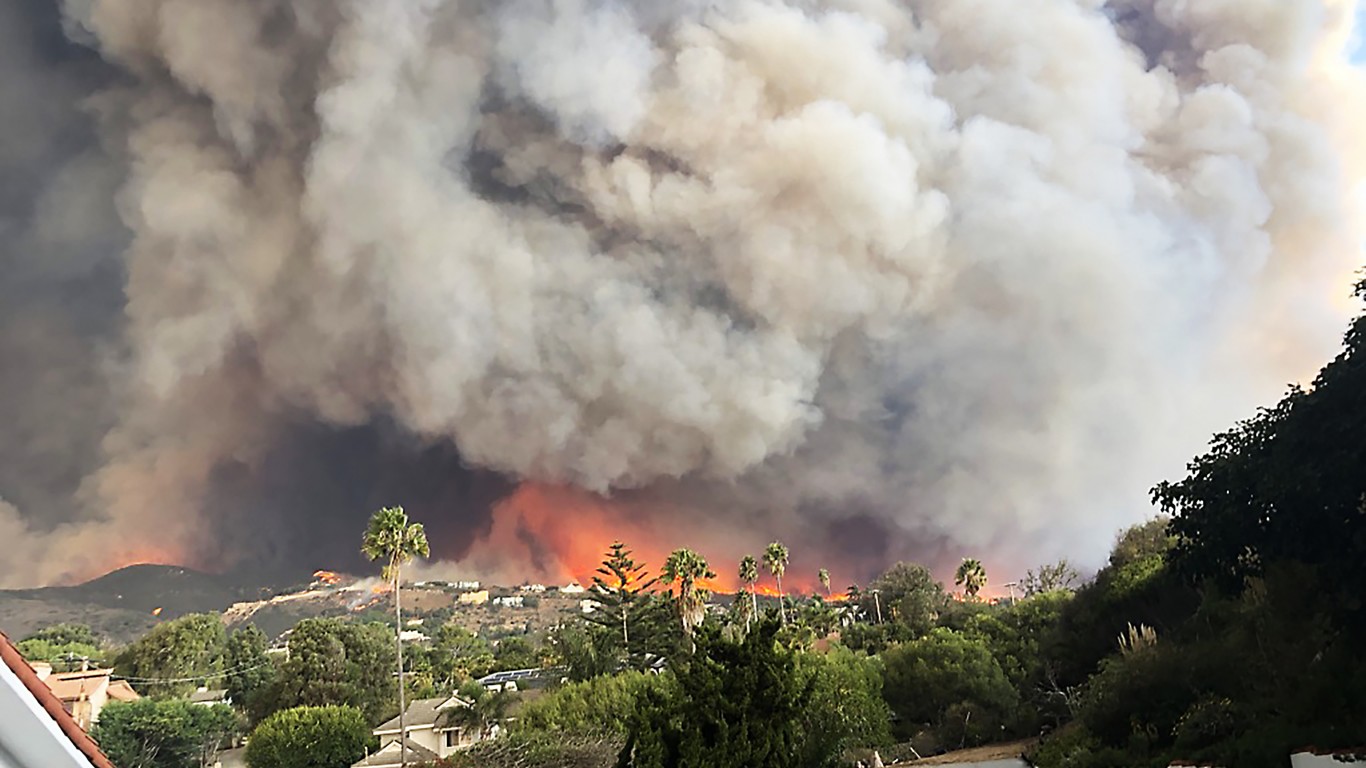
Every time there is a major catastrophe, experts opine about what it will cost. Wildfires in eastern Canada are the most recent example. CBS pounced on the news and put the national wildfire cost to workers at $100 billion annually. The figure is an amalgamation of data from several sources, so maybe it is accurate. There is no way to tell. (These are the 13 worst wildfires in American history.)
[in-text-ad]
The CBS number is based on at least two figures. The Natural Resources Defense Council puts the annual cost of “smoke, factory output and car exhaust” at $800 billion a year. But that universe is much larger than wildfires. So, the figure is not of much use.
Paul Billings, national vice president for public policy at the American Lung Association, commented on the effects of the fires and the smoke they produce, “These particles actually get into your blood and create a wide range of poor health outcomes, including stroke, heart attacks and different kinds of cancer.”
Another figure is from the National Bureau of Economic Research. That organization put the cost of wildfires on American workers at $125 billion in earnings. The research paper behind this figure is 56 pages long. The word “estimate” shows up 108 times.
It is hard to quarrel with the fact that smoke released into the air costs U.S. workers something. But the cost of that something varies widely, based on the source.
100 Million Americans Are Missing This Crucial Retirement Tool
The thought of burdening your family with a financial disaster is most Americans’ nightmare. However, recent studies show that over 100 million Americans still don’t have proper life insurance in the event they pass away.
Life insurance can bring peace of mind – ensuring your loved ones are safeguarded against unforeseen expenses and debts. With premiums often lower than expected and a variety of plans tailored to different life stages and health conditions, securing a policy is more accessible than ever.
A quick, no-obligation quote can provide valuable insight into what’s available and what might best suit your family’s needs. Life insurance is a simple step you can take today to help secure peace of mind for your loved ones tomorrow.
Click here to learn how to get a quote in just a few minutes.
Thank you for reading! Have some feedback for us?
Contact the 24/7 Wall St. editorial team.



